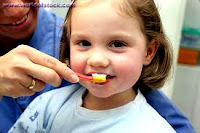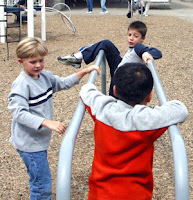Behavior Problems At Home - But Not At School

"I have great difficulty with my 6-year-old daughter (high functioning) at home due to frequent tantrums and meltdowns, yet her teacher states that her behavior at school is quite good. Why is this – and what can I do to get the same results at home?" First of all, just because the behavior occurs at home doesn’t necessarily mean the “cause” of the behavior lies there. Your daughter may find school very stressful, but keeps her emotions bottled-up until she gets home. Most kids with Aspergers and high-functioning autism (HFA) do not display the body language and facial expressions you would expect to see when a youngster is feeling a particular way. While your daughter may appear relatively calm at school, she may be experiencing very different emotions under the surface. Asking an HFA youngster how she feels may not get the correct response, because most of these young people struggle to explain their emotions to someone. Some find carrying visual “stress sca



